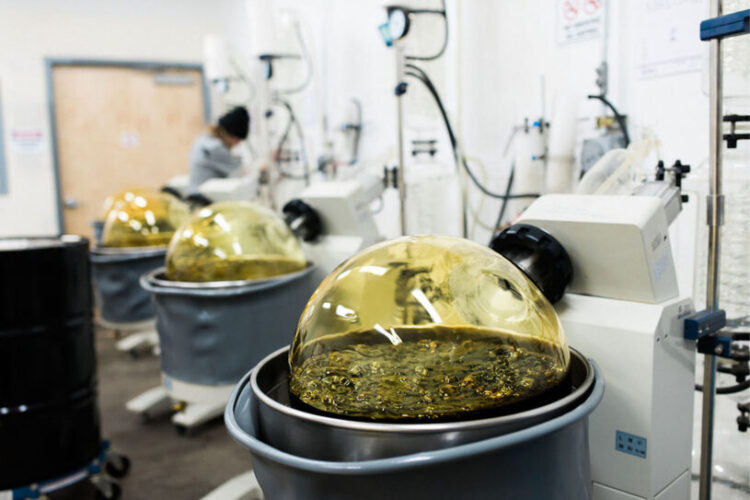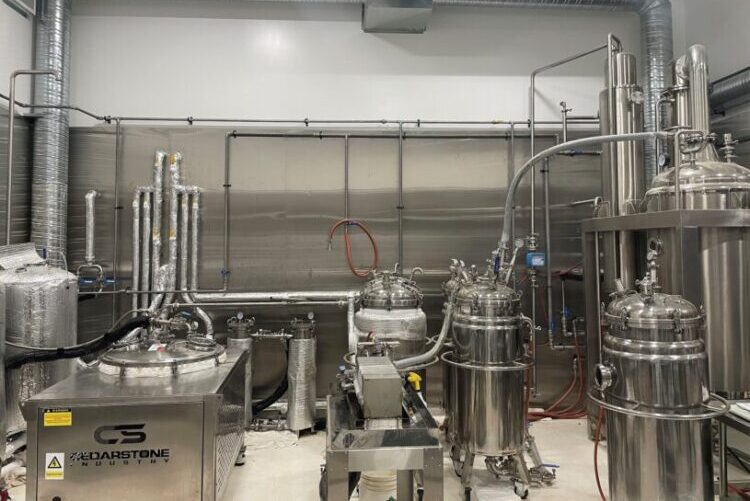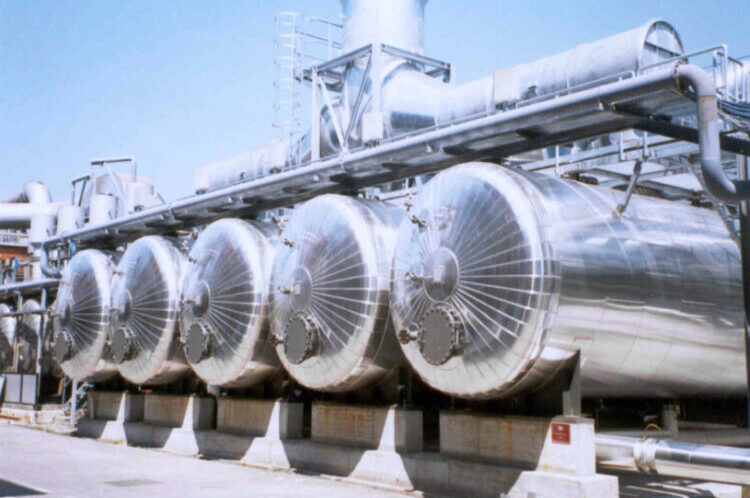The cannabis industry has witnessed a remarkable evolution, especially in the realm of cannabinoid isolation. Central to this transformation is the infusion of cutting-edge technologies that have refined processes and enhanced product quality.
Of course, cannabis is legalized all over the globe. But the most prominent regions where the market expands massively are the US and European Union. If you want to learn more about how this process is going in the EU, be sure ti visit this website.
Today, we want to discuss the pivotal tech trends revolutionizing the sector, offering a comprehensive look at how these innovations are reshaping practices and outcomes.
Advanced Extraction Methods

The pursuit of cannabinoid purity and efficiency has ushered in an era of innovative extraction methods. CO2 extraction, a technique favored for its safety and efficacy, has undergone significant technological enhancements.
These advancements have led to a substantial increase in the purity levels of the end products. Moreover, they have made the process more environmentally sustainable, aligning with the global push towards eco-friendly industrial practices.
CO2 extraction’s technological upgrades include improved control over critical variables like temperature and pressure, allowing for more precise cannabinoid isolation. This precision not only enhances the quality of the final product but also maximizes the yield, making the process more cost-effective. Additionally, the closed-loop systems in modern CO2 extraction minimize solvent waste, further contributing to environmental sustainability.
In parallel, ethanol-based extraction methods have seen substantial improvements, especially in the realms of safety and purity. Ethanol extraction, known for its efficiency in extracting a wide range of cannabinoids and terpenes, now features advanced filtration and distillation techniques.
These enhancements have significantly reduced the presence of unwanted residues and impurities in the final product, ensuring a higher level of purity.
The impact of these advanced methods extends beyond product quality. They set new benchmarks in the industry, with products achieving unprecedented levels of purity and potency. This progress resonates with consumers who increasingly demand high-quality, safe, and sustainable products.
Moreover, the efficiency gains from these methods contribute substantially to sustainable practices. Reduced energy consumption and minimized waste are pivotal in aligning the industry with environmental standards. Such advancements reflect not just a technological leap but also a response to the growing consumer demand for environmentally responsible products.
Looking to the future, the trajectory of extraction technology is poised for even more groundbreaking advancements. Innovations in areas such as energy efficiency, waste reduction, and automation are expected to address both ecological and economic challenges faced by the industry.
Automation and AI in Cannabinoid Isolation

The integration of automation into cannabinoid isolation marks a significant shift in the industry’s operational dynamics. Automated systems, now a staple in modern facilities, have brought about enhanced precision and consistency in the isolation process.
These systems range from automated temperature and pressure controls to more intricate machinery that handles critical phases of isolation. This automation significantly reduces the potential for human error and optimizes production timelines, leading to a more efficient and reliable process.
The role of Artificial Intelligence (AI) in this transformation cannot be overstated. AI algorithms are now being deployed to analyze vast amounts of data generated during the extraction process. These algorithms are designed to optimize conditions for maximum yield and purity, adapting in real-time to variations in raw material quality and environmental factors. This level of smart analytics ensures a consistently high-quality product tailored to specific requirements.
Predictive maintenance, another key feature powered by AI, ensures that machinery operates at peak efficiency. By predicting potential failures and scheduling maintenance accordingly, AI minimizes downtime and extends the lifespan of equipment. This not only improves operational efficiency but also reduces costs associated with unexpected breakdowns and repairs.
The implementation of AI extends to quality control processes as well. AI-driven systems can monitor the quality of the product throughout the extraction process, making adjustments as needed to ensure that the final product meets stringent quality standards. This real-time monitoring and adjustment capability is a significant leap forward in ensuring product consistency and safety.
The amalgamation of automation and AI in cannabinoid isolation is a game-changer for the industry. It leads to substantial cost savings, higher production rates, and consistent product quality. However, this technological advancement also poses its own set of challenges.
One significant challenge is the need for skilled personnel to manage and maintain these advanced systems. There is also the potential for disruption in traditional industry practices, requiring a shift in skills and adaptation to new technologies.
Despite these challenges, the potential for transformation and industry-wide adoption of these technologies is immense. As the industry continues to grow and evolve, the integration of automation and AI will play a crucial role in shaping its future. It promises not only higher efficiency and quality but also a new standard in how cannabinoid isolation is performed.
Green Technologies and Sustainability

In the realm of cannabinoid isolation, green technologies are gaining prominence, driven by both environmental concerns and consumer preferences. Innovations focus on minimizing the ecological footprint of the process, utilizing sustainable materials, and implementing methods that reduce energy consumption and waste.
The push towards sustainability in the industry is not just a response to environmental concerns; it’s becoming a business imperative. Consumers are increasingly favoring products made through eco-friendly practices, influencing market trends.
Additionally, regulatory bodies are setting stricter standards for environmental compliance, making sustainability a critical aspect of operational viability.
Emerging technologies in this space are diverse, ranging from solvent recovery systems to energy-efficient machinery. These innovations not only promise a greener future for cannabinoid isolation but also hint at cost savings through efficient resource utilization.
Industry stakeholders, from producers to investors, play a crucial role in driving these sustainable practices. By fostering a culture of environmental responsibility, the industry can ensure a sustainable and profitable future.
The Bottom Line
The technological landscape in cannabinoid isolation is dynamic, marked by groundbreaking advancements in extraction methods, automation, AI, and sustainability. These innovations have already begun to reshape the industry, setting new standards for product quality, efficiency, and environmental responsibility.
As the industry continues to evolve, these technologies will play a pivotal role in shaping its future, promising a more efficient, sustainable, and consumer-friendly landscape.
